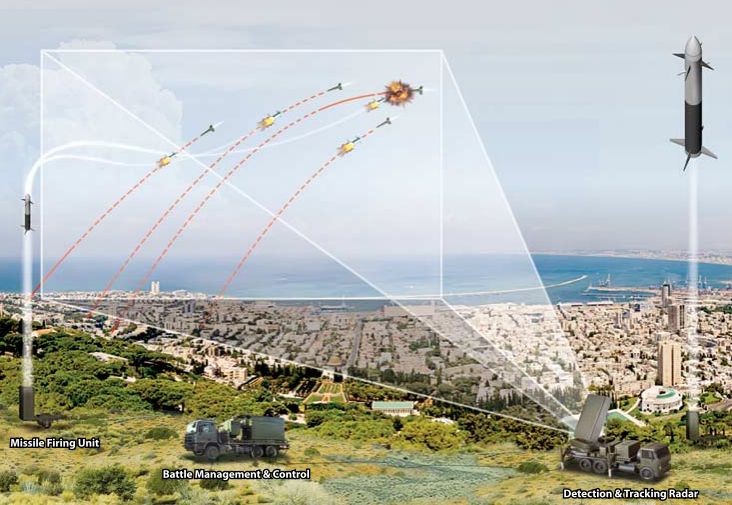Israel on Sunday stationed the first batteries of its “Iron Dome” short-range missile defence system in the south of the country, but stressed the initial deployment was experimental.
The unique multi-million dollar system was stationed outside the southern city of Beersheva, days after it was hit by several rockets fired from the Gaza Strip amid a rise in tensions and tit-for-tat violence.
But officials were quick to point out that the system, the first of its kind in the world, could not yet provide complete protection for the hundreds of rockets fired from Gaza into southern Israel.
“Israel has been under missile threat for 20 years, since the (1991) Gulf War. I do not want to foster the illusion that Iron Dome, which we are deploying today for the first time, will provide a complete or comprehensive answer,” Prime Minister Benjamin Netanyahu told his cabinet.
“Iron Dome is still in the experimental stage and we do not have the possibility of deploying batteries to protect every home, school, base and installation.”
So far, Israel has acquired just two batteries and no decision has been made yet on where to deploy the second unit.
“Today we are trying to accelerate the operational tests in order to be ready as fast as we can with the first systems,” said the commander of Israel’s air defences, Brigadier General Doron Gavish, speaking to reporters next to the first operational battery.
The deployment of the interceptor has been delayed until now, with officials saying operating crews need more training and critics suggesting the system is prohibitively expensive.
The system, developed by Israel’s Rafael Advanced Defence Systems with the help of US funding, is designed to intercept rockets and artillery shells fired from a range of between four and 70 kilometers (three and 45 miles).
Each battery comprises detection and tracking radar, state-of-the-art fire control software and three launchers, each with 20 interceptor missiles, military sources said.
Militants in Gaza and Lebanon’s Hezbollah militia have fired thousands of projectiles at Israel in the past.
According to plans, the system will first be deployed along the border of the Hamas-run Gaza Strip, from where militants fired a daily barrage of improvised rockets prompting Israel to launch a devastating 22-day offensive in December 2008.
It will then be deployed along the Lebanese border, from where Hezbollah militants fired some 4,000 rockets into northern Israel during a 2006 war. It was that experience which prompted the development of Iron Dome.
Israel believes Hezbollah now has an arsenal of some 40,000 rockets.
But a complete deployment is expected to take several years.
In May, US President Barack Obama asked Congress to give Israel 205 million dollars to develop the system, on top of the annual three billion dollars Israel receives from Washington.
Iron Dome will join the Arrow long-range ballistic missile defence system in an ambitious multi-layered program to protect Israeli cities from rockets and missiles fired from Lebanon, the Gaza Strip, Syria and Iran.
A third system, known as David’s Sling, is currently being developed with the aim of countering medium-range missiles.










